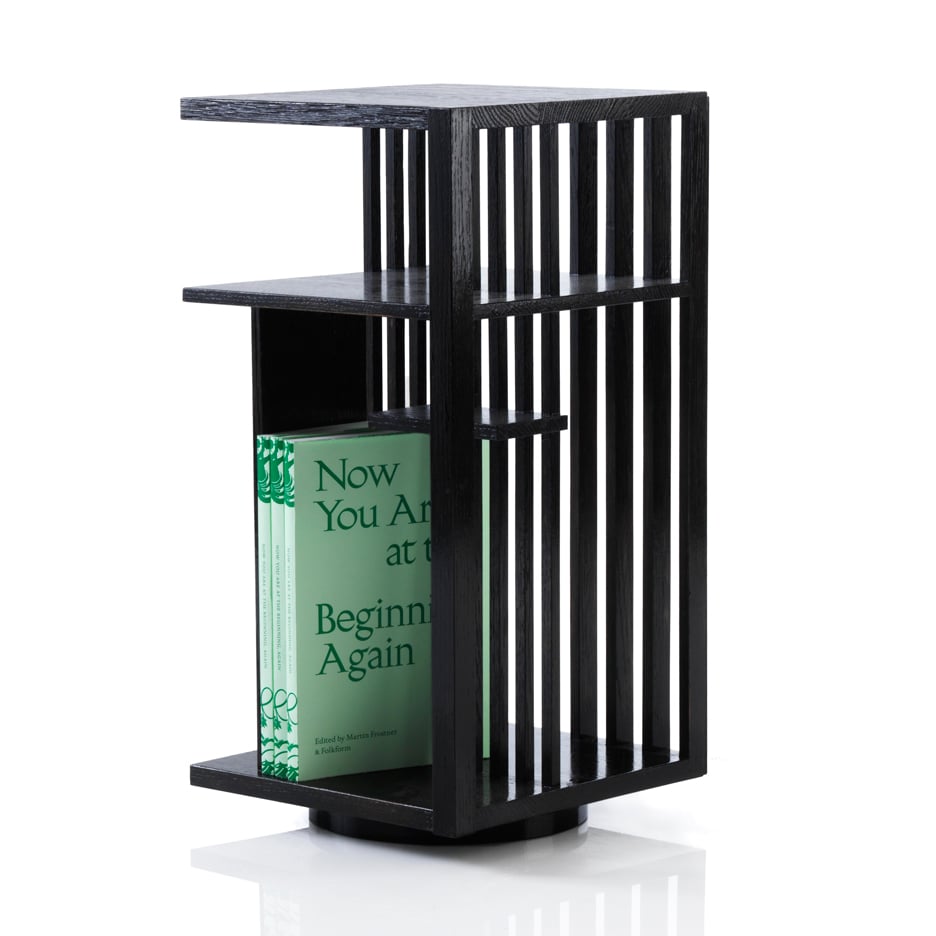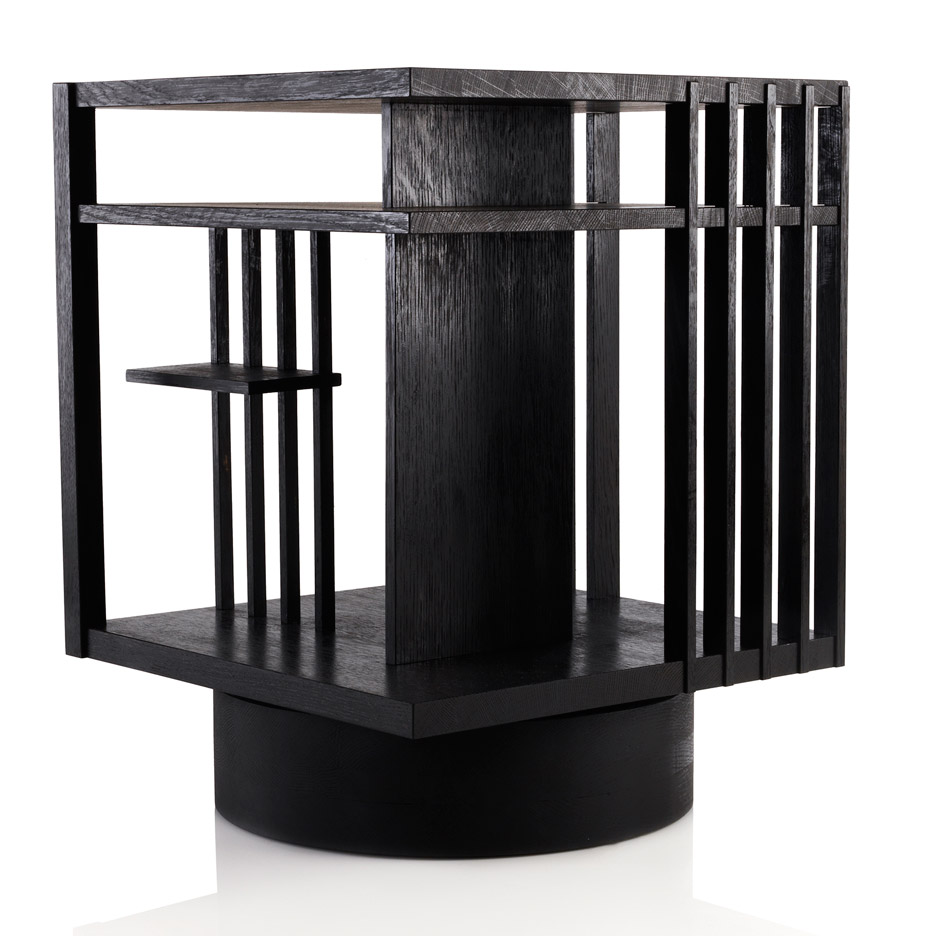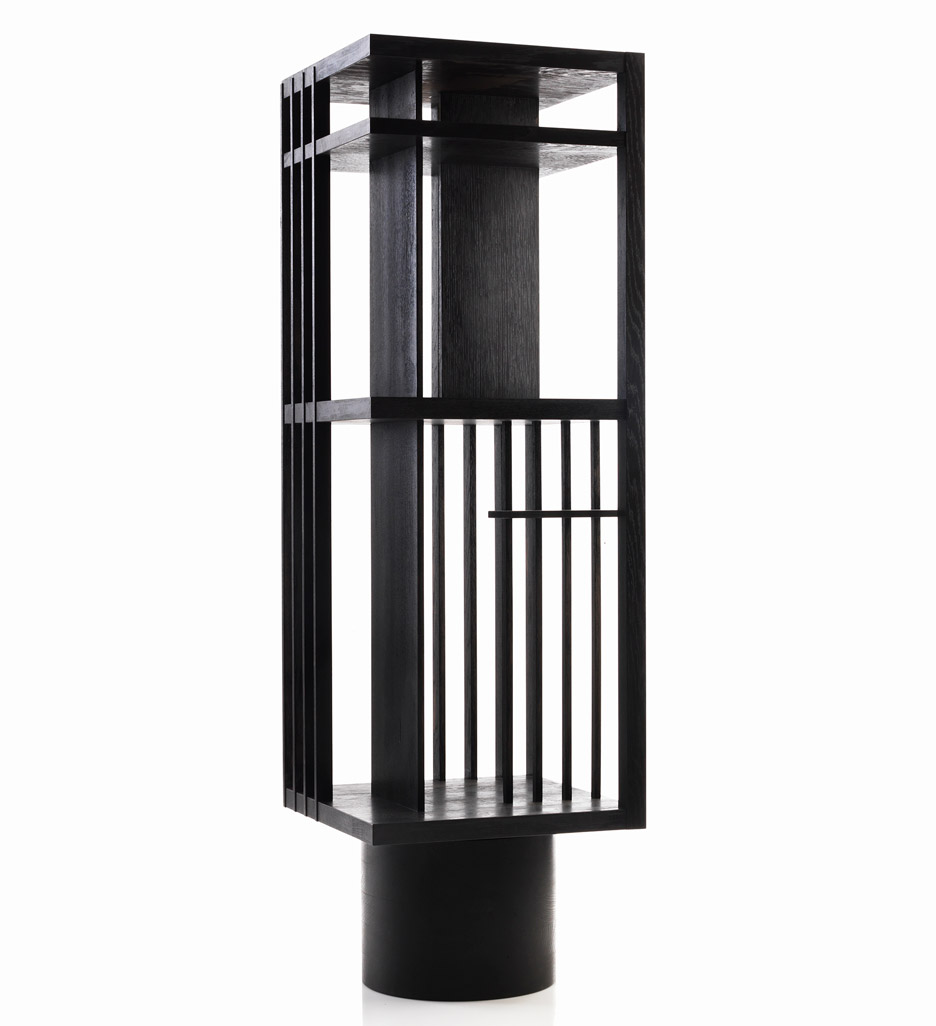Folkform's Revolving Bookcases designed to make physical books look desirable
Stockholm 2016: responding to the rise of digitalised texts and e-reader devices, Swedish design duo Folkform has created a set of revolving units for presenting "increasingly desirable" physical books.
Folkform's designers Anna Holmquist and Chandra Ahlsell believe that physical books are becoming more covetable in the digital age.
They therefore based the concept for their Revolving Bookcases and Archivers on the idea that readers will want select a smaller number of their favourite volumes to display on pieces of furniture, rather than across wall-to-wall shelves.

"Folkform believe, that in this time of increased digitalisation of texts, the book as a physical object will become increasingly desirable," said the designers.
The duo looked to antique revolving bookcases to inform the designs of their three-piece collection.
Made from blackened wood, each design has horizontal shelves positioned at various heights and vertical slats added to the exterior.
The rectangular cases sit on cylindrical bases, which rotate so books can be accessed from every angle. Two floor-standing bookcases come in different heights, while a smaller "archiver" can be placed on a table or desk.

Folkform also worked with graphic designer Martin Frostner to publish a unique book that accompanies the designs.
"The lines in the book symbolise the design and processes behind the new bookcase, that can be revolved round and round in the room; an end and a beginning in the same circular movement," said Holmquist.
Set up in 2005, Folkform has previously used 80-year-old samples of hardboard to create cabinets for Svenskt Tenn and contributed to a collection of brassware by Skultuna.

The studio exhibited their Revolving Bookcases and Archivers at the Rönnells antique bookshop on Stockholm's Birger Jarlsgatan from 11 to 20 February 2016.
The exhibition overlapped with this year's Stockholm Design Week, which also saw the launch of a collaborative homeware collection by Iittala and Issey Miyake, and an expansion of Claesson Koivisto Rune's Smaller Objects range.